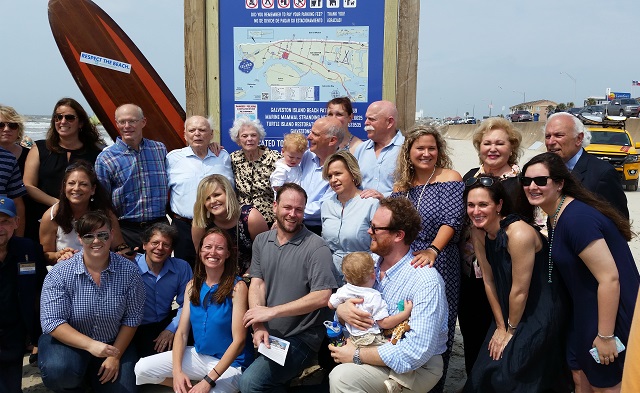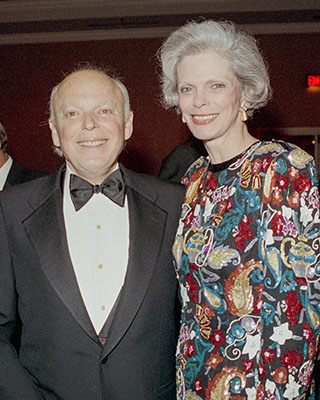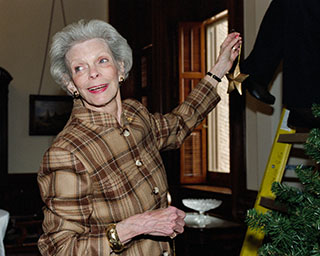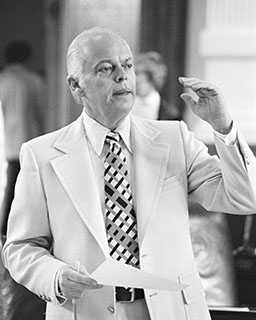This is the third installment in our occasional series, "Texas Treasures," highlighting some of the men and women who have served in the Texas Legislature. In previous posts, we featured Rep. Frank Calhoun and Sen. A.R. "Babe" Schwartz.
A lot of strong words have been used to describe former
Rep. Bob Davis—intense, shrewd, wily, riveting. And with good reason. Words applied to lawmakers with ordinary resolve and conventional political skills are too meager for a man
Texas Monthly once called: "beyond moderation . . . beyond classification . . . a player so avid he raises political gamesmanship to the intensity of a force of nature."
1
Robert Eugene "Bob" Davis represented Dallas County in the House of Representatives from 1973-1983. During his tenure he served on the body's most powerful committees including: Calendars; Ways and Means, which he presided over for two sessions; and Regions, Compacts, and Districts, currently known as Redistricting. Davis was also a member of the House Insurance committee for three sessions, serving as chairman during the 65th Legislature.
Following his freshman session, Davis was a delegate to the Texas Constitutional Convention and a member of the Citizens' Conference on State Legislatures, a precursor to the National Conference of State Legislatures.
The power of Davis' political resolve was untested when he entered the race for a House seat in 1972. He was young, inexperienced, and virtually unknown to the voters of his district when he signed on as a last-minute recruit in a landmark election season.
"I was 30 years old at the time of filing. My wife was pregnant with our third child, and it wasn't a good time," Davis explained. "A lawyer I knew called me in June and told me the Republican candidate had to drop out. He said: 'We have called 39 people, and no one wants to run. Are you interested?' I said yes and became a replacement candidate."
2
It didn't take long for Davis to prove himself a worthy replacement. His affinity for hard work and his status as a Republican worked to his advantage during the campaign—as did his lack of political experience. "I never really thought I would lose," Davis told the
Irving Daily News after his stunning victory.
3
The political odds were definitely in Davis' favor that year. Outrage over the Sharpstown Stock Fraud Scandal set the stage for a watershed election in 1972. And a court-ordered redistricting plan that required Dallas County to shift to single-member districts had provided a promising opening for a Republican candidate.
4
Once committed, Davis seized the opportunity. In the notorious "year they threw the rascals out," he trounced a well-known incumbent and joined a corps of reform-minded freshmen who were sent to Austin to shake things up.
When the 63rd Legislature convened in 1973, almost half of the House members were first-time lawmakers, and "none were greener than I," Davis remarked.
5
After taking office, Davis' knack for the political craft made it clear he was uniquely qualified to shake things up. Green or not, he was definitely a player.
Davis was featured in Texas Monthly's biennial assessment of best and worst lawmakers three times during his legislative career. Reflecting on his well-known status as a political heavyweight, Davis recalled two skills that were emphasized during freshman orientation: knowledge of the rules and personal relationships.
"My ideas were set when I first arrived. The exercise of power is really just an appreciation of knowledge—like the rules and the process—and personalities. There is nothing magical about it . . . I always had an affinity for the Rules of Procedure. My mastery of them helped me become a formidable opponent . . . It was also important to learn what was going on in the basement. I thought what we were doing was important, so I played hard, and I played to win."
6
Davis authored over 150 pieces of legislation during his 10-year career, many of which dealt with complex aspects of insurance and tax law. Of particular significance were bills passed in 1977 and 1979 related to taxation of intangible property and valuation of agricultural land.
7
At issue, particularly in cities like Irving which Davis represented, was whether large tracts of undeveloped land should be taxed based on productivity rather than fair market value. Davis argued in favor of switching to an "ag-use" valuation that would reduce the tax burden on farmers who were in danger of being forced to sell their land.
Opponents of the legislation were concerned the ultimate beneficiaries would be real estate developers and that cities would make up for lost revenue by raising taxes on homeowners. Acknowledging his bill drew no distinction between corporate and individual landowners, Davis made the case that promoting agricultural production was a worthy goal regardless of ownership.
8 Davis and others successfully addressed homeowners' concerns in a constitutional amendment authored by
Tim Von Dohlen. Considered together, the legislation provided a balanced solution to an acute problem and included tax relief for homeowners as well as farmers.
Altering tax policy is among the most contentious tasks a lawmaker can take on, and not every member is up to the challenge. In this case, Davis and his colleagues negotiated a tradeoff between urban and rural interests that saved cities from a huge tax increase and allowed agricultural land to remain in production.
9
As a result of his efforts, Davis was named one of
Texas Monthly's "ten best" and one of
Texas Business magazine's "five best" legislators in 1979. It also burnished his credentials as a "peerless strategist" and a "genius" at the legislative process.
10
Davis' expertise in addressing complex issues earned him several positions in state government after leaving the legislature in 1983. Three years after returning to his private law practice, Davis became director of budget and planning for
Gov. Bill Clements, an experience he said was "fun and difficult."
11 He also served on Governor Clements' taxation committee and was a member of the General Services Commission from 1989 to 1995.
12
Davis practiced law for several years after completing his service in state government. Eventually, he eased out of litigation and focused on wills, estates, and regulatory matters. Davis is now enjoying what he calls "a comfortable period of doing a whole lotta nuthin'."
13
Looking back on his legislative service, Davis recalls: "The Legislature was a fascinating place for me . . . I didn't want to give up doing the job of a member, but I absolutely became tired of the process of getting elected."
14
Davis says he is not political now. He leaves that work to his son, Doug, and his daughter-in-law, Karina.
When we spoke in October, Davis and his wife were preparing for a trip to the Pacific Northwest. "We will be enjoying ourselves and following the trail of Lewis and Clark"
15—a fitting journey of discovery for a "force of nature."
A collection of Representative Davis' legislative memorabilia is on display in the Legislative Reference Library.
1 Burka, Paul. "The Ten Best and the Ten Worst Legislators," Texas Monthly, July 1981, p. 108.
2 Davis, Bob, interview by Nancy Watson and Lindsay Wickham, 10/14/2016.
3 Wilson, Doris E. "Bob Davis: New State Rep Champing at the Bit to Start," Irving Daily News, 11/26/1972, p. 1.
4 Deaton, Charles. The Year They Threw the Rascals Out, Austin, TX: Shoal Creek Publishers, 1973, p. 151, 153.
5 Davis, Bob, 10/14/2016.
6 Ibid.
7 Legislative Reference Library, Legislative Archive System, accessed 1/16/2017.
8 McDaniel, Ann. "The 'Ag-Use' Tax: Does it Spell Relief?" Dallas Times-Herald, 5/6/1979.
9 Davis, Bob, 10/14/2016.
10 Burka, Paul, "The Ten Best and the Ten Worst Legislators," Texas Monthly, July 1979, p. 95.
11 Davis, Bob, 10/14/2016.
12 Legislative Reference Library, Texas Appointment System, accessed 1/17/2017.
13 Davis, Bob, 10/14/2016.
14 Ibid.
15 Ibid.
This entry was posted on March 3, 2017 at 11:47 AM and has received 3208 views.
Print this entry.
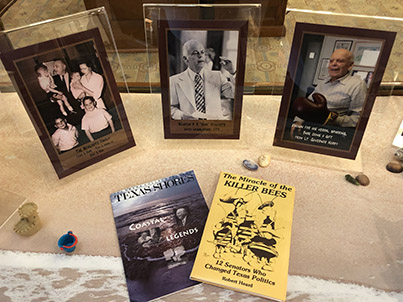
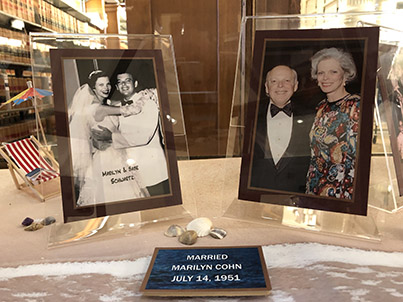


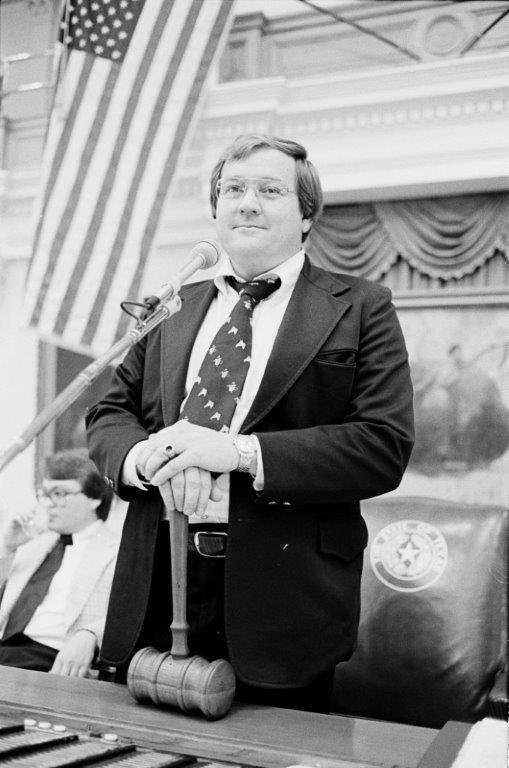
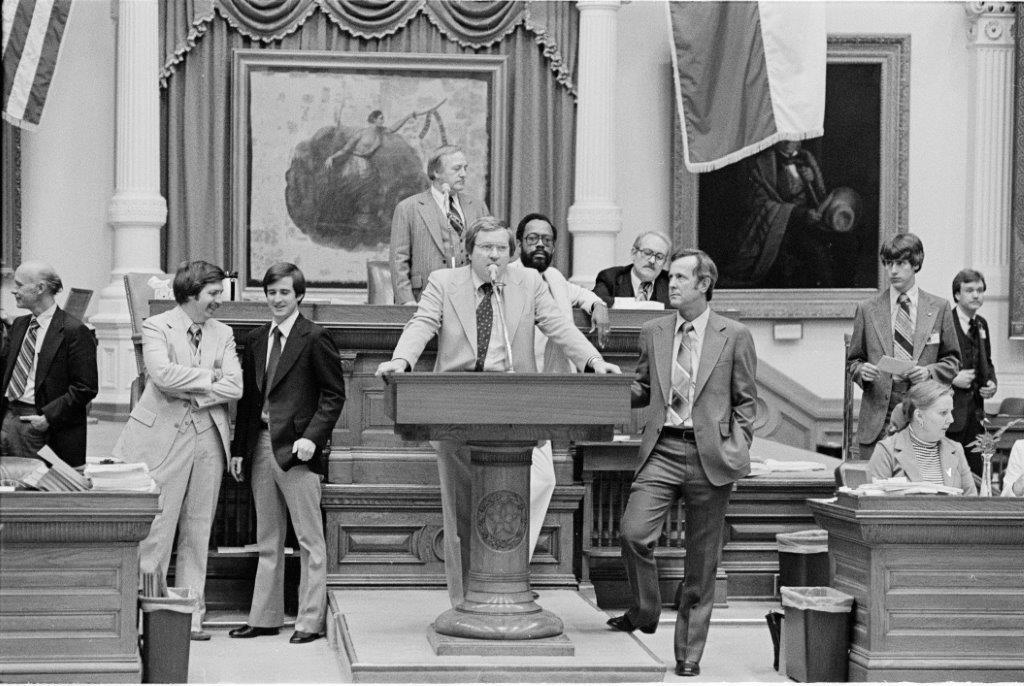
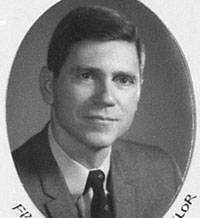 Rep. Frank Calhoun, 61st Legislature (1969).
Rep. Frank Calhoun, 61st Legislature (1969).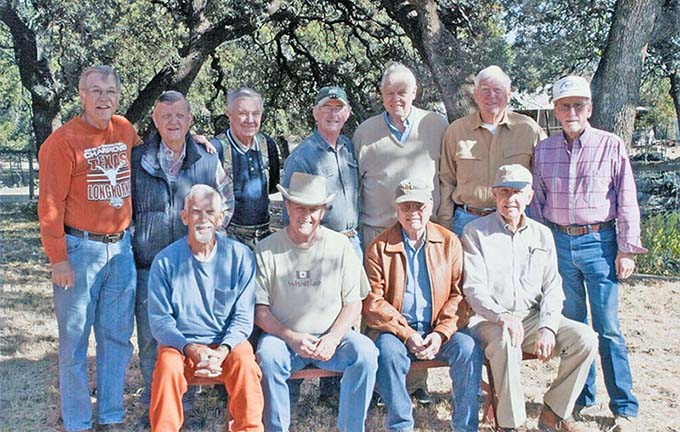 Back row, left to right: Rayford Price, L.E. "Lee" Arnold, Dick Callahan, Walter Fisher, Glenn Biggs, Frank Calhoun, Guy Floyd
Back row, left to right: Rayford Price, L.E. "Lee" Arnold, Dick Callahan, Walter Fisher, Glenn Biggs, Frank Calhoun, Guy Floyd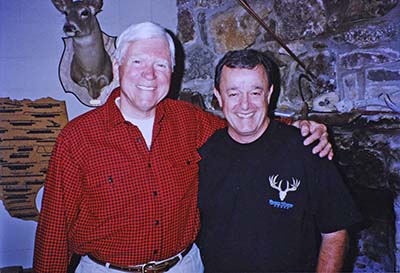 Frank Calhoun and Hilary Doran at Doran Ranch, November 2005.
Frank Calhoun and Hilary Doran at Doran Ranch, November 2005.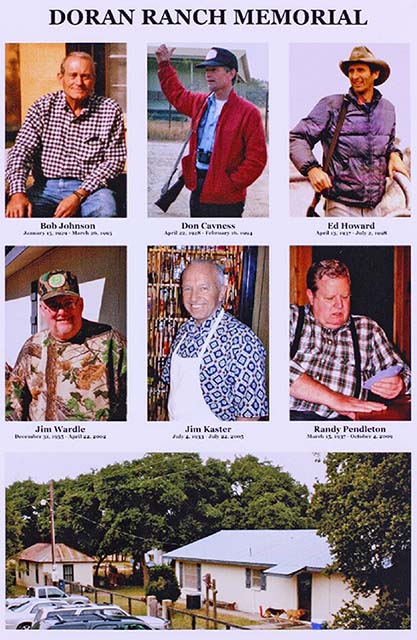 Deceased members include: Bob Johnson, Don Cavness, Ed Howard, Jim Wardle, Jim Kaster, and Randy Pendleton. Not pictured are: Glenn Biggs, Dick Cory, David Crews, and Grant Jones. Bottom photo: The lodge at Doran Ranch.
Deceased members include: Bob Johnson, Don Cavness, Ed Howard, Jim Wardle, Jim Kaster, and Randy Pendleton. Not pictured are: Glenn Biggs, Dick Cory, David Crews, and Grant Jones. Bottom photo: The lodge at Doran Ranch.